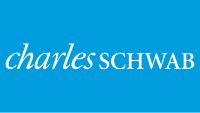Are There Fees on an IRA?
Fees to set up and maintain an IRA are uncommon. You’re more likely to see fees for transactions, commissions and investment management, for example. These fees are important to consider when you’re saving for retirement.
Key Facts About IRA Fees
- Look for an IRA provider that doesn’t charge a fee to set up or maintain the account.
- If you want to work with an advisor, you may pay an annual fee such as 0.20% or 0.85%
- You’ll likely pay a fee to rollover or close your IRA.
Let’s go over the common fee structures of IRAs and some of the providers with the lowest IRA fees.
Traditional IRA Fees and Roth IRA Fees
Let’s start with a breakdown of the fees you’re likely to encounter with both traditional IRAs and Roth IRAs. These fees are important to consider when you’re saving for retirement.
- Account setup fees are the first cost you could encounter. They are rare and can usually be avoided by funding your account with a specified amount of money. Ultimately, you should avoid IRA providers with mandatory account setup fees.
- Account maintenance fees (or custodial fees) are also fairly unusual and avoidable, depending on the size of your account. Nevertheless, some IRA providers charge a fee to administer your account. The most expensive providers charge over $50 per year.
- Transaction fees and commissions on investment trades are fairly common and can range from a few dollars to $100 or more per trade, depending on the type of asset being bought or sold. Fortunately, the best discount brokers have completely eliminated this expense for online trades of stocks and exchange-traded funds (ETFs).
- Investment management fees are another common charge. Self-directed investors can easily avoid this expense, but if you need any advisory services, you’ll have to pay for them If your investments are managed by human advisors, expect to pay fees of around 0.80% to 1.20%. Accounts managed by automated robo-advisors have lower fees, as they use artificial intelligence and data analysis technology instead of human-to-human service. Expect fees of around 0.20% to 0.45% with accounts managed by robo-advisors.
- Rollover and account closing fees can come into play when closing your IRA or rolling it over to another provider. If you open an IRA and lose confidence in the provider, you can move your money to a new IRA from another provider. If this process is executed in a way that aligns with IRS guidelines, you won’t be charged taxes or penalties. However, it’s not uncommon for the original service provider to charge a termination fee of $25 to $100.
Management fees and sales charges relating to any fund-style investments held within them can impact your IRA. These fees are commonly associated with mutual funds and ETFs, with ETFs being a significantly cheaper option. Pay close attention to these fees when comparing your investment options.
How Do IRA Fees Impact My Retirement?
When IRA fees are excessive, they can have a serious drag on your retirement savings. To avoid this situation, it’s important to carefully review the fees involved with any account you’re considering investing in.
IRA Fees by Company
Now that we’ve reviewed common IRA fees, let’s look at the fee structures of several popular IRA providers, including Charles Schwab IRA fees and Vanguard Roth IRA fees.
The chart below provides a summary of companies with low fees
| Provider | Description | Fees | Minimum | Best For |
|---|---|---|---|---|

Learn More |
Charles Schwab is the leader of the discount brokerage market, offering low-cost options for investors, coupled with robust mobile technology and an array of supplemental offerings |
|
|
Investors focused on minimizing costs, while having access to analytics resources and the flexibility to move between self-directed and managed accounts |
Learn More |
E-Trade is a preferred option for active investors, as the firm offers cutting-edge trading platforms, including robust mobile techbology | No setup fees and no commissions for online trades of stocks and ETFs (charges apply for other assets and broker/phone initiated trades) | $0 | Active traders who need dynamic tools and efficient access to all markets |
Learn More |
Fidelity is an industry leader, providing access to all publicly traded assets with a reputation for being the lowest-cost broker in the market |
|
$0 | Investors who want economical access to all markets |

Learn More |
Merill Edge offers a spectrum of services, from self-directed accounts with minimal fees to research-based accounts with added services |
|
|
Investors focused on minimizing costs, while having access to analytics resources and the flexibility to move between self-directed and managed accounts |

Learn More |
As a subsidiary of Charles Schwab, TD Ameritrade offers low-cost options for investors, coupled with robust mobile technology and an array of supplemental offerings | No setup fees and no commissions for online trades of stocks and ETFs (charges apply for other assets and broker/phone initiated trades) | $0 | Investors focused on minimizing costs, while having access to analytics resources |
Learn More |
Vanguard is the original proponent of low-cost, index-style investing, and it now boasts a competitive IRA offering. |
|
|
Investors who favor passive investment strategies |






